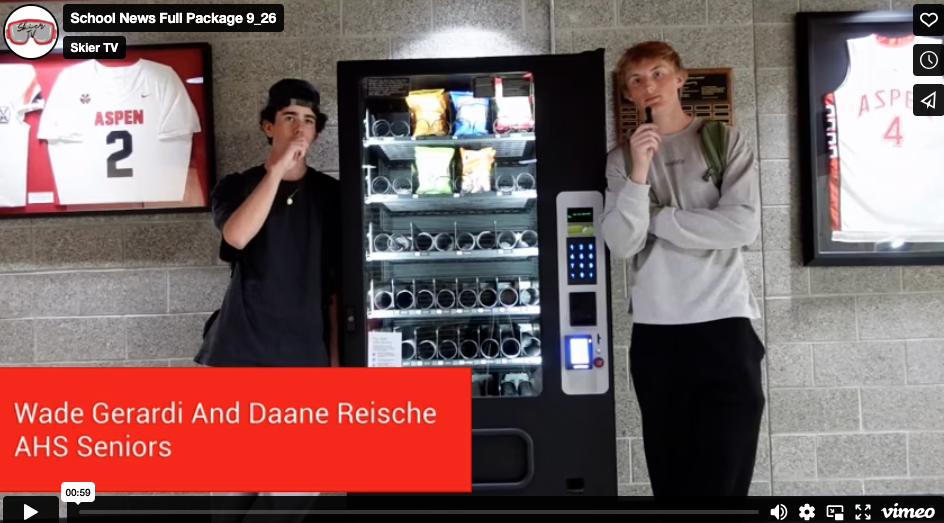Wednesday, November 20 – In a decisive victory, President-elect Donald J. Trump won re-election to the White House over Vice President Kamala Harris. Trump won the popular election by over four million votes. For context, Joe Biden won by eight million votes in 2020, so President-elect Trump’s margin was half that of President Joe Biden’s. However, despite his 312 electoral votes, Trump lost Colorado by a landslide. He received only 43% of the state’s vote, and 350,000 more people voted for Harris than him.
President Trump also lost Aspen by a landslide. Preliminary results from Pitkin County’s voting system show that 7,849 out of Pitkin County’s 11,208 voters in the last election voted for Harris. In other words, more than seven out of every ten people (71%) voted for Harris, while only 2,953 people – or 27% of all voters – cast their ballots for President-elect Trump. Pitkin County’s 71% of votes for Harris make it one of Colorado’s bluest counties, behind only Denver, Boulder, and San Miguel.
75% of Pitkin County residents voted for President Biden in 2020 – showing, even in an ultra-Democratic county, a shift toward the right. Colorado as a whole was easily won by Harris, who received more than half of the vote – but Republicans in Colorado overall received more of the vote than in 2020. Pitkin County voted about 15% more left, or Democratic, than the rest of the state.
In addition to a rightward shift in the Presidential Election, Democrat Adam Frisch received a smaller percentage of the vote this year. In 2022, 79% of Pitkin County voters voted for Frisch, but this year, only 73% supported him – a 6% decrease in support. On November 7th, Frisch conceded the race to Congressman-elect Jeff Hurd (R-CO).
Pitkin County officials estimate that voter turnout this year was 80%, compared to 71% in 2022. This does not mean that 80% of Pitkin County residents voted, but rather that 80% of those already registered to vote cast a ballot. Part of the high turnout may have been due to strong opinions on Aspen Airport (ASE).
The airport currently fails to comply with FAA safety regulations that require hundreds of feet between the taxiway and the runway. This means the FAA has to limit the wingspan of planes that fly into Aspen, but increasing the separation requires an increase in runway size. This increase is seen as beneficial for those who want to fly larger-wing planes into the airport, but opponents Citizens Against Bigger Planes argue it will worsen the pollution and noise issues caused by the airport.
The two citizen-led initiatives arguing for opposite sides of the issue were donated over $370,000 to help bring people to their sides. The money was divided relatively equally among the sides. This pales in comparison to other ballot-measure spending initiatives (only 0.88% of Colorado’s total ballot spending was on this issue), but since Pitkin Voters are only 0.4% of the state’s whole voting population, it is a significant amount. (A “ballot-measure spending initiative” refers to the actions of an organization or person campaigning for or against a specific ballot measure. The state does not spend money advertising ballot measures.)
A Whole Lot of People for a Better Airport, a political organization in Aspen, achieved its goals on Election Day. The organization argued for voting “Yes” on Proposition 1C and “No” on Ballot Question 200. Voting “no” on Proposition 1C would have blocked the county from changing the airport without citizen approval. The measure passed, giving power to the county. It is now likely that the airport will change to comply with FAA regulations that require the taxiway to be hundreds of feet from the runway. According to the FAA, this is required to allow longer-wing aircraft at the airport, which are both safer and can fly further. Ballot Question 200 failed to achieve a majority. It was the opposite of Prop. 1C, meaning a majority of “yes” votes would have stripped power from the county.
In the Town of Aspen specifically, all taxes up for a vote were kept. These included an existing 0.45% sales tax for affordable housing (Issue 2B) , that passed by over 1,800 votes. Issue 2A proposed extending the current real-estate transfer tax (paid when a property changes ownership) of 1.0%. It passed by 1,300 votes. Additionally, more than 85% of Aspenites voted in favor of Issue 2C, which lowers the tax percentage on buying motor vehicles. Instead of paying a 2.4% tax on vehicle purchases, people in Aspen will now pay a 2.1% tax of total vehicle price for owning it. This is a one-time tax and will only apply to future vehicles, not currently owned ones.
In addition, Ballot Issue 1A passed, increasing taxes in Pitkin County by over $8 million a year. The county will use the additional funds for affordable housing. Issue 1B, arguing for increasing county debt to build out the landfill, passed with over 80% support. The landfill was previously projected to fill up within the next 14 years but will now be usable for half a century.
So what happens now? On November 25th, Pitkin County officials will certify the election results in a process known as Canvass. From there, the initiatives will take effect over time. The airport will likely change to comply with FAA regulations since the County Commissioner now has authority to do so. Jeff Hurd will represent Aspen in Congress. Pitkin County taxes will increase by over $8 million a year to serve the needs of “affordable and attainable housing” within Aspen and, on January 21st, President-elect Trump will become the country’s 47th President.








